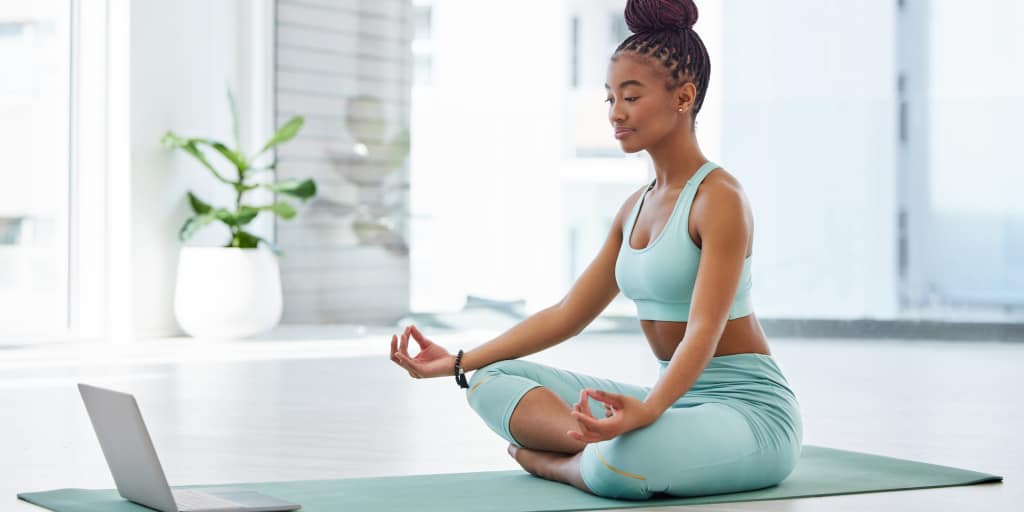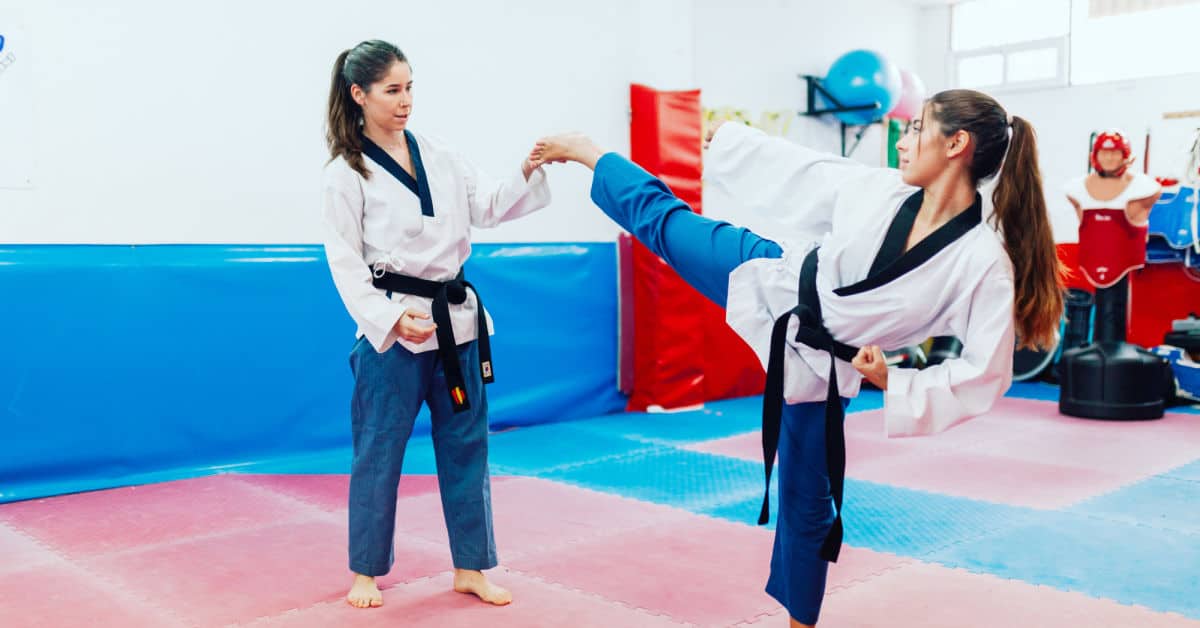11 Ways to Increase Self Confidence
(This page may contain affiliate links and we may earn fees from qualifying purchases at no additional cost to you. See our Disclosure for more info.)
Self-confidence is hard to define, yet it's a concept we all feel and understand. Many believe it's an essential key to success.
When our confidence is high, it gives us the courage to speak up and try new things. But when it's low? It feeds our doubt and holds us back.
Everyone has low self-confidence from time to time. Doubt and fear are natural human emotions, even for the most self-assured.
But perpetual low self-confidence does more than keep you from pursuing your dreams, it can spill over into every aspect of your life.
The great news is self-confidence is like a muscle you can exercise and strengthen!
So, if a lack of confidence impacts your personal or professional life, you can take steps to improve it.
Below we'll define self-confidence and why it's so important. Then, we'll share 11 effective ways to develop your sense of confidence.
“As soon as you trust yourself, you will know how to live.” – Johann Wolfgang von Goethe
What is self-confidence?

Self-confidence is trusting your ability to handle different aspects of life. That is, a positive feeling about yourself affects your actions and emotions.
Self-confidence means
- knowing who you are, what you want, how you think, and what you believe.
- feeling good about who you are, even when others don't agree, and even when you make mistakes.
- you understand your strengths and weaknesses and can live a full life with them.
- respectfully standing up for and taking care of yourself.
Why develop self-confidence?
Self-confidence improves your quality of life in many ways—personal, professional, and financial.
And though it doesn't make problems disappear, it does make you more resilient when faced with difficulties.
A healthy self-belief
- helps you feel better mentally and physically.
- improves the quality of your relationships.
- creates healthier coping skills.
- opens you up to new ideas and experiences.
- enables you to take action.
11 Approaches to Developing More Confidence
Self-confidence isn't just positive thinking, nor is it a fixed matter. The good news is you can work to improve it!
Even if you start with only one or two methods below, you'll begin feeling a difference as you shed negative thinking and beliefs.
“You wouldn't worry so much about what others think of you if you realized how seldom they do.” – Eleanor Roosevelt
#1 Don't compare yourself to others.
Here's a concept that's easier said than done!
Making social comparisons is a common, ordinary, human thing everyone does from time to time.
Sometimes, comparisons aren't all bad – like when you measure yourself against others in an area you want to improve.
It can motivate you and, if you're successful, give you a boost of confidence.
For example, the positive results of a friend paying off a loan might inspire you to pay off your debt faster.
But generally, comparing yourself to others does more harm than good. It can lead to feelings of envy, hostility, poor self-esteem, and inferiority (and even superiority).
Also, comparisons are often biased; it's easy to take a snapshot of someone's life and fill in speculative details.
For example, let's say you see a friend's job promotion on social media.
You might feel bad that you haven't had a raise in a long time. There's likely a twinge of envy and a tendency to assume reasons they've received a promotion (and you haven't).
Ways to limit social comparisons:
- Recognize triggers. Notice when people or activities trigger harmful comparisons. Accept them as normal but unhelpful, and avoid them when you can.
- Focus on your own life (and values). Everyone does life differently; let go of the “shoulds” and remember life's not a contest. You'll be more satisfied living your values than someone else's.
- Practice gratitude. Commit to a regular gratitude practice, like a gratitude journal, to focus on the good things in your life.
- Conquer imposter syndrome. Honor your hard work, resiliency, and achievements, both big and small. Hang them on your mirror, put them on your phone, or write them in your journal. Celebrate your successes!
Related: Why Is Adopting an Abundance Mindset Important?
#2 Take care of yourself.
Our culture values productivity and busyness, making it hard to focus on self-care.
Yet, self-care is one of the best things you can do to boost your self-confidence (and improve your life!).
Taking care of your mind and body feels good. A self-care routine makes you feel healthier, stronger, and more energetic – and, naturally, more self-confident.

Self-care can include:
- Exercise. Exercise improves physical well-being; research shows it also benefits mental health in countless ways.
- Healthy eating. A healthy diet also improves both physical and psychological health.
- Good sleep habits. Getting enough quality sleep on a daily basis lowers your risk of physical health problems. And it improves mental health, mood, and memory.
- Mindfulness/Meditation. Meditation and mindfulness training help you be more present and reduce negative self-talk.
- Taking control of your finances. Financial self-care can reduce stress and allow you to change or improve personal life circumstances.
- Therapy. A therapist or counselor can help reduce anxiety and depression, cope with trauma, and reframe self-defeating thoughts and behaviors.
Related: Self-Care Ideas for Your Mental and Financial Health
#3 Be kind to yourself.
Treating yourself with kindness is an excellent way to boost your confidence. Start by challenging negative self-talk.
We've all heard that voice in our head that says we're not worthy or good enough. Negative self-talk and limiting beliefs happen to everyone.
But when negativity runs awry, it damages our human spirit and sabotages self-confidence.
The first step to changing this negativity is to recognize it. Then, once you're aware of self-defeating thoughts, replace them with kinder, more positive self-talk.
So, the next time you find negative words emerging, ask yourself if you would talk to others that way.
- Would you say those things to a friend, family member, child, or someone you meet on the street?
- What would you say to someone you love to encourage them?
- How would you support a loved one who was working on self-improvement?
Begin to treat and talk to yourself the way you'd speak to a loved one.
#4 Be honest with (and about) yourself.
An essential step towards building confidence is to be honest with yourself.
Honesty means admitting when you're wrong, not just telling yourself what you want or think others want to hear.
When you admit your mistakes, you gain insight into who you are and where you need improvement. This helps you become a better person and build self-confidence.
Self-reflection is a powerful tool in helping you achieve this. Start by asking yourself these questions:
- What do I love about myself? What am I proudest of? What would I change about myself? What am I ashamed of?
- What do I value? Who do I admire?
- When am I my happiest? What makes me angry? What frustrates me?
- What do I wish I knew? What do I wish others knew about me?
- What do I want to do more of, and what do I need to let go of to grow?
- Am I holding myself back with self-limiting beliefs?
Also, consider if you're hiding things about yourself from others, such as what you do or what you like.
Dig deep to understand why you don't share these things. It might be that you don't fully accept that piece of yourself.
That's not to say you should share everything about yourself with everyone.
But once you accept who you are – and can share it with others – you'll feel more confident (and authentic) about who you are.
Once you've answered those questions honestly, you'll find that you're already well on your way to developing self-confidence.
Also, acknowledge prior mistakes (and move forward).
Mistakes are part of life.
That doesn't necessarily make it easier to admit it when you mess up. But being honest about mistakes is a way to practice self-compassion and move forward.
“It is not so much our friends' help that helps us, as the confidence of their help.” – Epicurus
#5 Check your mindset
Your mindset determines whether you're living in scarcity or abundance.
Scarcity means you believe there's not enough of everything; abundance means you think there's plenty of everything.
The scarcity mindset is a limiting belief that keeps you stuck in a rut, it makes you feel bad about yourself and prevents you from achieving short and long-term goals.
On the other hand, the abundance mindset is a liberating belief that allows you to achieve what you set out to accomplish. It makes you feel great about yourself and helps you reach your personal goals.
Adopting an abundance mindset will help you develop self-confidence and avoid harmful thinking patterns.
One way to do this is to be grateful for what you already have rather than focusing on what you lack.
Start by thinking about things you're thankful for.
Then, when you notice yourself getting upset about something, stop and remind yourself of at least three things you're grateful for instead.
This simple technique works because gratitude increases positivity and decreases negativity.
You'll find yourself happier and more confident, especially when dealing with difficult situations.
Read: Can Changing Your Mindset Change Your Life?
#6 Maintain positive relationships
Positive relationships are essential to our happiness and well-being.
They help us feel better, build healthy self-esteem, and improve our health.
You feel good when you're in relationships with people who appreciate you, respect you, and want the best for you.
Uplifting and encouraging friends and family will support and cheer you on through good and bad times rather than pull you down or squash your dreams.
Whereas negative people and toxic relationships make you feel bad. That negativity is draining and frustrating and may lead to anger or extreme sadness.
So notice how others make you feel in personal and social situations – and try to spend most of your time with those who promote positive self-worth.
Cutting ties with toxic friends or family members is complex, but it's necessary.
Don't let anyone hold you back because they're afraid to lose you.
Instead, surround yourself with people who lift you and encourage you to grow.
- Find people who share similar values. Values are things that matter deeply to you. Finding people who share your values makes you feel closer to them and helps you build stronger friendships.
- Be open to meeting new people. New people often bring out the best in us.
- Volunteer. Volunteering gives you the opportunity to meet uplifting people and learn valuable life lessons. It also provides the opportunity to give back, which feels good and builds positive self-esteem.
#7 Do things you enjoy and are good at
You feel better about yourself when you do what you enjoy and are great at. Your confidence grows, and you become happier and more productive.
Reflect on the following questions to identify your strengths.
- What are you naturally good at?
- What skills do you enjoy using?
- What activities make you happy?
- What are you doing when you feel “in the zone”?
Take part in things you love and are good at to boost self-confidence and life satisfaction.
Spend more time on your favorite tasks and activities at work and during your free time.
For example, if you are good at pickleball, you might play weekly. Not only will your game get stronger, but it will boost your self-confidence and enjoyment.
If you enjoy writing, start a blog, write for other online sites, or begin that book you've been thinking about.
Do more of what you enjoy; your happiness will increase, you'll be more productive, and your confidence will grow.

#8 Say no to things you don't want to do
Sure, sometimes it's good to say ‘yes' to new things to challenge yourself.
But saying yes to too many things you don't enjoy or feel obligated to do (out of guilt) lowers self-confidence.
Be honest about your commitments and activities. How do these things make you feel? If it's not a positive feeling, and you have a choice, say ‘no.'
Setting boundaries for what you will and will not do is an excellent way to build self-confidence.
Not only will it help you be more faithful to yourself, but you'll also feel safer and more in control.
“To be yourself in a world that is constantly trying to make you something else is the greatest accomplishment.” – Ralph Waldo Emerson
#9 Practice things you want to improve upon
The only way to get better at anything is to practice, practice, practice. Even the most successful people continue to practice their skills regularly.
The key to improvement is starting small and working your way up. So instead of trying to master everything at once, pick one area of improvement and focus on that.
Then when you feel confident enough, move on to another area.
Use preparation and fear laddering strategies when anxious about a new experience.
Prepare by practicing, studying, or gaining familiarity before you do it. Or, use fear laddering by starting with small steps and working up to taking part in the experience.
For example:
- When starting a new job, you can prepare for your first day beforehand. You might practice your commute, review orientation material, and complete paperwork ahead of time to feel more confident.
- If public speaking in front of large groups makes you anxious, try making a short presentation or two to your family or friends, then move up to a small group of associates or a local event.
Practicing activities will help build confidence and expand your skill set. As you continue improving your abilities, move on to more significant challenges.
The more you practice, the better you'll become. And the faster you'll reach your goals.
#10 Define your own success
This also requires getting to know yourself.
Are your goals indeed your goals, or are they goals others have for you?
Are you living life according to what you “should” do? Or, deep down, do you dream of doing something different – something more you?
Use your values as a compass to point you in the right direction. You can only define your success if you understand your goals and values.
Also, do you have high-reaching, perfectionist aspirations, or are they doable, realistic goals?
Setting unattainable goals hurts self-confidence. Instead, set achievable goals that you can take one step at a time – and build self-confidence as you go.
Related: Make Resolutions, Set Goals, or Build Positive Habits?
#11 Keep learning and challenging yourself
Whenever you try something new, it takes effort to feel confident. Still, you must take risks and try new things to build self-confidence.
Challenges help you stretch yourself and squelch negative beliefs.
Challenge yourself to learn something new every week. It's easy to fall into a rut and stick with what you already know. But this limits how much you grow and develop.
Staying curious keeps you growing, and growth increases your level of confidence.
When you challenge yourself to learn something new, you'll gain knowledge and become a more positive and confident person along the way.
Additionally, you'll feel more accomplished because you've learned something new. This boosts your self-esteem and gives you a feeling of pride.
Closing thoughts
Remember, self-confidence isn't fixed – it can be developed with time, effort, and practice!
Not every one of the ways listed above will fit every person. But developing a healthy level of confidence is something from which most people can benefit.
Start with just one or two areas to focus on, and see where it takes you. It just might improve your entire life.
Next: What Does Financially Independent Mean?

Article written by Amanda
Amanda is a team member of Women Who Money and the founder and blogger behind Why We Money. She enjoys writing about happiness, values, money, and real estate.
